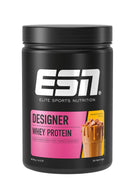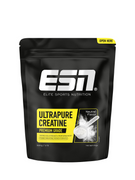Wozu braucht der Körper Vitamine?
Vitamine und Mineralstoffe gelten als essenzielle Nährstoffe, die im Zusammenspiel zahlreiche Aufgaben im Körper erfüllen. Sie sorgen für gesunde Haut, Haare, Nägel, tragen zur Regulierung des Hormonhaushalts bei und sind essenziell für unseren Stoffwechsel und die Schilddrüse. Außerdem haben sie auch innerhalb des Immunsystems Schlüsselfunktionen. Zudem wandeln sie Nahrung in Energie um und schützen unsere Zellen vor Schäden durch oxidativen Stress. Jeder Mensch benötigt eine unterschiedliche Menge jedes Vitamins, um gesund zu bleiben.
Was sind die wichtigsten Vitamine für den menschlichen Körper?
Die wichtigsten Vitamine für den Körper im Überblick:
- Vitamin D
- Vitamin K
- Vitamin A
- Vitamin B1
- Vitamin B2
- Niacin
- Pantothensäure
- Vitamin B6
- Biotin
- Folsäure
- Vitamin B12
- Vitamin C
- Vitamin E
Grundsätzlich unterscheidet man fettlösliche und wasserlösliche Vitamine. Die Vitamine A, D, E und K sind fettlöslich. Der Körper speichert fettlösliche Vitamine im Fettgewebe und in der Leber.[1] Die Reserven dieser Vitamine können tage- und manchmal sogar monatelang den Körper versorgen. Nahrungsfette helfen dem Körper, fettlösliche Vitamine über den Darm aufzunehmen.
Wasserlösliche Vitamine verbleiben hingegen nicht lange im Körper und können nur bedingt bis gar nicht gespeichert werden.[2] Sie verlassen den Körper über den Urin, wenn sie nicht verbraucht werden. Deshalb braucht der Mensch eine regelmäßigere Zufuhr von wasserlöslichen Vitaminen als von fettlöslichen. Vitamin C und alle B-Vitamine sind wasserlöslich.[3]
Alle 13 Vitamine sind essenziell und übernehmen wichtige, unterschiedliche Aufgaben im menschlichen Körper. Es gibt also nicht „die wichtigsten“ Vitamine, denn schon ein fehlendes Vitamin sorgt dafür, dass unser Körper nicht so funktioniert wie er soll. Schauen wir uns die Vitamine im Detail an.
1. Vitamin D
Vitamin D kommt als Ergocalciferol (D2) oder Cholecalciferol (D3) vor.
- Vitamin D ist fettlöslich.
- Funktion: Das Vitamin ist notwendig für die gesunde Mineralisierung der Knochen.
- Bedarf: Führende internationale Wissenschaftler und Vereinigungen empfehlen Tagesdosen in Höhe von zumindest 50 Mikrogramm (2.000 i.E.).[4],[5]
- Mangel: Eine zu geringe Zufuhr an Vitamin D kann zu Rachitis und Osteomalazie führen, d. h. zu einer Erweichung der Knochen. Weiterhin kann das Immunsystem geschwächt werden.[6]
- Gute Quellen: Durch die UVB-Strahlen der Sonne kann der menschliche Körper über die Haut Vitamin D bilden. Allerdings sind die meisten Menschen in unseren Breitengraden einfach zu wenig der Sonne ausgesetzt und nehmen daher auch zu wenig Vitamin D auf. Lebensmittel mit Vitamin D sind beispielsweise fettiger Fisch, Eigelb, Rinderleber oder Pilze. Diese Lebensmittel tragen aber nur unerheblich zur Deckung des Bedarfs bei.
- Vitamin D2 oder D3: Die bessere, bioverfügbare Form ist Vitamin D3, weshalb man bei Vitamin-D-Quellen auf Cholecalciferol achten sollte.
2. Vitamin K
Vitamin K kommt in verschiedenen Formen vor: Am bekanntesten sind Phylloquinon (K1) oder Menachinon (K2).
- Vitamin K ist fettlöslich.
- Funktion: Das Vitamin ist notwendig für die Blutgerinnung und den Einbau von Calcium in die Knochen.
- Bedarf: Vitamin K sollte im Optimalfall an die Vitamin D Zufuhr im Verhältnis 1,4 bis 2 zu 1 angepasst werden. Also bei 50 Mikrogramm Vitamin D rund 70 bis 100 Mikrogramm Vitamin K.[7]
- Mangel: Ein Mangel ist selten, kann aber in schweren Fällen die Gerinnungszeit erhöhen und dafür sorgen, dass das Calcium aus den Blutgefäßen nicht in die Knochen gelangt und sich dort ablagert. Das kann einerseits zu übermäßigen Blutungen und andererseits zur Verkalkung der Blutgefäße führen.[8]
- Vitamin K1 oder K2: Vitamin K2 hat sich als die wichtigere Form herausgestellt.[9]
- Gute Quellen: Lebensmittel, die Vitamin K enthalten, sind z. B. verschiedene Blattgemüse, Kürbisse, Feigen oder auch Petersilie.
Vitamin D3+K2 Spray
- Hochdosiert und ergiebig – für mehr als 3 Monate versorgt (100 Tagesportionen)
- Vegan, alkohol- und zuckerfrei
- Bequeme und schnelle Einnahme immer und überall
3. Vitamin A
Chemische Bezeichnungen und unterschiedliche Formen von Vitamin A sind Retinol, Retinal oder Beta-Carotin. Beta-Carotin ist ein Provitamin oder eine Vorstufe von Vitamin A, das in Pflanzen vorkommt – vor allem in Obst und Gemüse sowie in ölhaltigen Früchten. Zwar ist Beta-Carotin an sich ein Antioxidans, aber der Körper kann es bei Bedarf auch in Vitamin A umwandeln.
- Vitamin A ist fettlöslich.
- Funktion: Das Vitamin ist für die Gesundheit der Augen unerlässlich und unterstützt die Erhaltung gesunder Haut, Schleimhaut, Zellen und Gewebe.
- Bedarf: Die Tagesdosis von Vitamin A für Erwachsene liegt bei 700 bis 900 Mikrogramm. Schwangere haben einen 10 und Stillende einen 85 %-ig erhöhten Bedarf.[10]
- Mangel: Eine Unterversorgung des Vitamins kann zu Nachtblindheit und Keratomalazie führen, bei der die klare vordere Schicht des Auges trocken und trüb wird.[11]
- Gute Quellen: Leber, Lebertran, Karotten, Brokkoli, Süßkartoffeln, Butter, Grünkohl, Spinat, Kürbis, Kohlgemüse, einige Käsesorten, Eier, Aprikosen oder Milchprodukte. Während der Schwangerschaft sollte man aufgrund des sehr hohen Vitamin-A-Gehalts nicht zu leberhaltigen Lebensmitteln greifen, sondern auf eine kontrollierte Vitamin-A-Zufuhr achten.
4. Vitamin B1
Für Vitamin B1 wird auch der Begriff Thiamin verwendet.
- Vitamin B1 ist wasserlöslich.
- Funktion: Das Vitamin ist unentbehrlich für den Energiestoffwechsel und das Nervensystem.
- Bedarf: Erwachsene sollten täglich 1,1 bis 1,3 Milligramm Vitamin B1 zu sich nehmen. Schwangere und Stillende haben einen leicht erhöhten Bedarf.[12]
- Gute Quellen: Vitamin B1 ist z. B. in Hefe, Fleisch, Vollkornprodukten, Sonnenblumenkernen, braunem Reis, aber auch in Spargel, Grünkohl, Blumenkohl, Kartoffeln, Orangen, Leber und Eiern enthalten.
5. Vitamin B2
Vitamin B2 ist auch unter dem Namen Riboflavin bekannt.
- Vitamin B2 ist wasserlöslich.
- Funktion: Das Vitamin ist wichtig für die Erhaltung gesunder Schleimhäute und hilft bei der Verstoffwechselung der Nahrung.
- Bedarf: Erwachsenen wird eine Tagesdosis von 1,1 bis 1,4 Milligramm Vitamin B2 empfohlen.[13]
- Mangel: Zu den Symptomen bei einem Vitaminmangel gehören Entzündungen der Lippe und Risse im Mund.[14]
- Gute Quellen: Vitamin B2 findet sich beispielsweise in Spargel, Bananen, Mangold, Hüttenkäse, Milch, Joghurt, Fleisch, Eiern, Fisch und grünen Bohnen.
6. Niacin
Niacin ist eine andere Bezeichnung für Vitamin B3.
- Niacin ist wasserlöslich.
- Funktion: Niacin braucht der Körper unter anderem für die Zellteilung.
- Bedarf: Erwachsene sollten eine Tagesdosis von 14 bis 16 Milligramm Niacin zu sich nehmen. Schwangere haben einen leicht erhöhten Bedarf.[15]
- Mangel: Ein extrem niedriger Niacinspiegel führt zu einem Gesundheitsproblem namens Pellagra, das Durchfall, Hautveränderungen und Störungen des Darms verursacht.[16]
- Gute Quellen: Niacin ist z. B. in Huhn, Fleisch, Thunfisch, Lachs, Milch, Eiern, Tomaten, Blattgemüse, Brokkoli, Karotten, Kartoffeln, Nüssen und Samen, Tofu und Linsen enthalten.
7. Pantothensäure
Ein anderer Begriff für Pantothensäure ist Vitamin B5.
- Pantothensäure ist wasserlöslich.
- Funktion: Pantothensäure ist notwendig für die Energie- und Hormonproduktion.
- Bedarf: Die empfohlene Tagesdosis Pantothensäure für Erwachsene liegt bei 5 bis 7 Milligramm. Schwangere und Stillende haben einen leicht erhöhten Bedarf.[17]
- Mangel: Zu den Symptomen eines Pantothensäure-Mangels gehören Taubheit und Brennen in Händen und Füßen, Kopfschmerzen, extreme Müdigkeit, Reizbarkeit, Unruhe, Schlafstörungen, Magenschmerzen, Sodbrennen, Durchfall, Übelkeit, Erbrechen und Appetitlosigkeit.[18]
- Gute Quellen: Pantothensäure ist z. B. in Fleisch, Vollkornprodukten, Brokkoli, Avocados und Joghurt enthalten.
8. Vitamin B6
Vitamin B6 ist auch unter dem Namen Pyridoxin oder Pyridoxamin bekannt.
- Vitamin B6 ist wasserlöslich.
- Funktion: Das Vitamin ist für die Bildung der roten Blutkörperchen unerlässlich und trägt zu einem gesunden Immunsystem bei.
- Bedarf: Erwachsene sollten täglich 1,3 bis 1,6 Milligramm Vitamin B6 zu sich nehmen. Schwangere und Stillende haben einen um 50 % erhöhten Bedarf.[19]
- Mangel: Ein Mangel an Vitamin B6 kann unter anderem zu Anämie und Depressionen führen.[20]
- Gute Quellen: Für eine ausreichende Zufuhr an Vitamin B6 werden beispielsweise Kichererbsen, Rinderleber, Bananen, Kürbisse und Nüsse empfohlen.
9. Biotin
Biotin ist ebenfalls unter der Bezeichnung Vitamin B7 bekannt.
- Biotin ist wasserlöslich.
- Funktion: Biotin hilft dem Körper beim Stoffwechsel von Proteinen, Fetten und Kohlenhydraten. Außerdem sorgt es für eine gesunde Haut, starke Haare und feste Nägel.
- Bedarf: Für eine ausreichende Zufuhr mit Biotin sollten Erwachsene eine Tagesdosis von 30 bis 40 Mikrogramm des Vitamins zu sich nehmen.[21]
- Mangel: Zu wenig Biotin kann zu Dermatitis oder Darmentzündungen führen.[22]
- Gute Quellen: Eine ausreichende Aufnahme an Biotin ermöglichen Lebensmittel wie z. B. Eigelb, Leber, Brokkoli, Spinat und Käse.
10. Folsäure
Für Vitamin B9 wird heute überwiegend der Begriff Folsäure verwendet.
- Folsäure ist wasserlöslich.
- Funktionen: Folsäure übernimmt eine wichtige Aufgabe bei der Zellteilung.
- Bedarf: Erwachsene haben einen Bedarf von etwa 400 Mikrogramm Folsäure pro Tag. Bei Frauen, die schwanger werden wollen, liegt der tägliche Bedarf von Folsäure etwas höher: Sie sollten auf 800 Mikrogramm Folsäure am Tag kommen und somit zusätzlich 400 Mikrogramm Folsäure pro Tag supplementieren.[23],[24]
- Mangel: Während der Schwangerschaft kann ein Mangel an Folsäure das Nervensystem des Fötus und danach des Säuglings beeinträchtigen. Ärzte empfehlen deshalb Folsäureergänzungen vor und während der Schwangerschaft, sowie in den ersten Monaten der Stillzeit.[25]
- Gute Quellen: Nennenswerte Mengen an Folsäure befinden sich z. B. in Blattgemüse, Erbsen, Hülsenfrüchten, Leber, einigen angereicherten Getreideprodukten und Sonnenblumenkernen. Auch verschiedene Früchte enthalten kleinere Mengen an Folsäure.
11. Vitamin B12
Vitamin B12 gehört mit zu den wichtigsten Vitaminen für den Menschen.
- Vitamin B12 ist wasserlöslich.
- Funktion: Vitamin B12 ist wichtig für ein gesundes Nervensystem, unterstützt die Zellteilung und die Bildung von roten Blutkörperchen.
- Bedarf: Die empfohlene Tagesdosis an Vitamin B12 für Erwachsene liegt bei 2,4 bis 4,0 Mikrogramm.[26]
- Mangel: Eine zu geringe Zufuhr an Vitamin B12 kann zu neurologischen Problemen und einigen Arten von Anämie führen.[27]
- Gute Quellen: Vitamin B12 findet sich in Fisch, Schalentieren, Fleisch, Geflügel, Eiern, Milch und anderen Milchprodukten, angereicherten Getreide- und Sojaprodukten und in angereicherter Nährhefe.
Vor allem Veganer sollten Vitamin B12 zusätzlich supplementieren, da sie ihren Bedarf kaum über die Nahrung decken können.
12. Vitamin C
Ascorbinsäure ist die chemische Bezeichnung von Vitamin C.
- Vitamin C ist wasserlöslich.
- Funktion: Das Vitamin trägt zur Kollagenproduktion, Wundheilung und Knochenbildung bei. Außerdem stärkt es die Blutgefäße, unterstützt das Immunsystem, hilft dem Körper bei der Aufnahme von Eisen und wirkt als Antioxidans.
- Bedarf: Erwachsene sollten eine Tagesdosis von mindestens 75 bis 110 Milligramm Vitamin C zu sich nehmen – Sportler sogar 200 Milligramm.[28]
- Mangel: Ein schwerer Mangel an Vitamin C kann zu Skorbut führen, was wiederum Zahnfleischbluten, Zahnausfall sowie schlechtes Gewebewachstum und Wundheilung verursacht. Schon ein geringer Mangel beeinträchtigt das Immunsystem.[29]
- Gute Quellen: Lebensmittel mit reichlich Vitamin C sind Obst und Gemüse. Allerdings zerstört der Kochvorgang das Vitamin C in der Nahrung, daher sollten frisches Obst und rohes Gemüse regelmäßig auf deinem Speiseplan stehen.
13. Vitamin E
Vitamin E ist auch unter der fachlichen Bezeichnung der verschiedenen Formen Tocopherol oder Tocotrienol bekannt.
- Vitamin E ist fettlöslich.
- Funktion: Die antioxidative Wirkung von Vitamin E hilft oxidativen Stress zu verhindern, der das Risiko von Entzündungen und verschiedenen Krankheiten erhöht.
- Bedarf: Erwachsene sollten täglich 15 Milligramm Vitamin E zu sich nehmen.[30]
- Mangel: Ein klinisch relevanter Mangel an Vitamin E ist zwar selten, kann aber z. B. zu Muskelschwäche[31] oder Problemen mit dem Immunsystem im Alter führen.[32]
- Gute Quellen: Das Vitamin E ist beispielsweise in Weizenkeimen, Kiwis, Mandeln, Eiern, Nüssen, Blattgemüse und Pflanzenöle enthalten.
Was mache ich, wenn ich nicht alle 13 Vitamine über meine Ernährung bekomme?
In besonderen Lebenssituationen oder -phasen kannst du einen höheren Bedarf an bestimmten Vitaminen entwickeln. So haben schwangere und stillende Frauen beispielsweise einen erhöhten Bedarf an Folsäure und Sportler:innen aufgrund ihrer hohen Aktivität grundsätzlich einen größeren Verbrauch an Vitaminen und Mineralstoffen. Genauso wie Menschen, denen im Alltag regelmäßig hohe Leistung abverlangt wird.
Nicht immer kannst du diesen erhöhten Vitaminbedarf über die Ernährung decken – hier kommen Nahrungsergänzungsmittel ins Spiel! Diese Präparate können und sollen keineswegs eine ausgewogene Ernährung ersetzen, aber sie unterstützen dich bei der Zufuhr wichtiger Nährstoffe.
Fazit: Die 13 wichtigsten Vitamine sind der Treibstoff des Menschen
Vitamine sind essenzielle Nährstoffe, die hauptsächlich über die Nahrung aufgenommen werden. Alle 13 Vitamine erfüllen verschiedene Aufgaben im Körper, weshalb ein Vitaminmangel die Gesundheit auf unterschiedliche Weise beeinträchtigen kann.
Eine ausgewogene, abwechslungsreiche Ernährung, die viel Obst und Gemüse enthält, sollte die Zufuhr der wichtigsten Vitamine sichern. In der Schwangerschaft, bei gesundheitlichen Problemen, bei eingeschränkter Ernährung oder intensiver körperlicher Aktivität kann zusätzlich ein Nahrungsergänzungsmittel zur Deckung des Vitaminbedarfs eingenommen werden. Letztendlich sollten Nahrungsergänzungsmittel – wie der Name schon sagt – immer nur als Ergänzung betrachtet werden und nicht als Ersatz für die Nahrung.
Quellen
- https://www.ncbi.nlm.nih.gov/books/NBK534869/
- https://www.ncbi.nlm.nih.gov/books/NBK538510/
- https://www.cancer.gov/publications/dictionaries/cancer-terms/def/water-soluble-vitamin
- Holick M. F. (2011). Vitamin D: a d-lightful solution for health. Journal of investigative medicine : the official publication of the American Federation for Clinical Research, 59(6), 872–880.
- Kimball, S. M., & Holick, M. F. (2020). Official recommendations for vitamin D through the life stages in developed countries. European journal of clinical nutrition, 74(11), 1514–1518.
- https://ods.od.nih.gov/factsheets/VitaminD-Consumer/
- van Ballegooijen, A. J., Pilz, S., Tomaschitz, A., Grübler, M. R., & Verheyen, N. (2017). The Synergistic Interplay between Vitamins D and K for Bone and Cardiovascular Health: A Narrative Review. International journal of endocrinology, 2017, 7454376.
- https://ods.od.nih.gov/factsheets/VitaminK-HealthProfessional/
- Schwalfenberg G. K. (2017). Vitamins K1 and K2: The Emerging Group of Vitamins Required for Human Health. Journal of nutrition and metabolism, 2017, 6254836.
- National Institutes of Health (2021). Vitamin A Fact Sheet for Health Professionals.
- https://patient.info/healthy-living/vitamin-a-deficiency-leaflet
- National Institutes of Health (2021). Thiamin Fact Sheet for Health Professionals.
- National Institutes of Health (2021). Riboflavin Fact Sheet for Health Professionals.)
- https://www.ncbi.nlm.nih.gov/books/NBK470460/
- National Institutes of Health (2021). Riboflavin Fact Sheet for Health Professionals.
- https://www.aocd.org/page/Pellagra
- National Institutes of Health (2021). Pantothenic Acid Fact Sheet for Health Professionals.
- https://ods.od.nih.gov/factsheets/PantothenicAcid-Consumer/#h6
- National Institutes of Health (2021). Vitamin B6 Fact Sheet for Health Professionals.
- https://ods.od.nih.gov/factsheets/VitaminB6-HealthProfessional/
- National Institutes of Health (2021). Biotin Fact Sheet for Health Professionals.
- https://www.ncbi.nlm.nih.gov/books/NBK547751/
- National Institutes of Health (2021). Folic Acid Fact Sheet for Health Professionals.
- EFSA Journal 2014;12(11):3893
- https://ods.od.nih.gov/factsheets/Folate-Consumer/
- National Institutes of Health (2021). Vitamin B12 Fact Sheet for Health Professionals.
- https://ods.od.nih.gov/factsheets/VitaminB12-HealthProfessional/
- National Institutes of Health (2021). Vitamin C Fact Sheet for Health Professionals.
- https://ods.od.nih.gov/factsheets/VitaminC-HealthProfessional/
- National Institutes of Health (2021). Vitamin E Fact Sheet for Health Professionals.
- https://www.ncbi.nlm.nih.gov/books/NBK1241/
- https://www.ncbi.nlm.nih.gov/labs/pmc/articles/PMC3320807/








